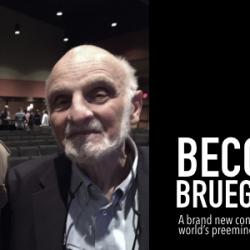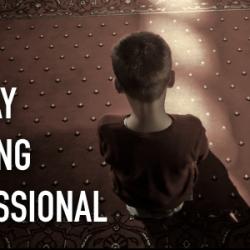 I confess that I have not written a Monday Morning Confessional since October 20th. That I have not written one has much to do with the fact that I am attempting to take a real Sabbath from Sunday afternoon until Monday afternoon.
I confess that I have not written a Monday Morning Confessional since October 20th. That I have not written one has much to do with the fact that I am attempting to take a real Sabbath from Sunday afternoon until Monday afternoon.
My definition of Sabbath is anything but rigid. Sabbath means almost anything that encourages delight, a joy or enjoyment of the delectability of time. Sabbath is not necessarily the cessation of work, but the cessation of restlessness (Brueggemann said that). Apologies to my Jewish brothers and sisters for this presumptive interpretive gloss, but I think it is possible for Sabbath to include certain kinds of work. Exercise is a form of work that can be soothing to the soul. Gardening or even mowing the lawn can be completely enjoyable to some people.
However, writing the Monday Morning Confessional has felt like the kind of work that runs counter to the spirit of Sabbath for me. So I gave it a rest for awhile. This is not to say that I gave up everything that feels like a restless work on Mondays. Sabbath is always a work in progress. But I’m giving it my best shot.
I confess that I do not understand grammar, and cannot intelligently discuss the parts of speech. I write–and this is embarrassing for me–mostly by the seat of my pants. Commas are my nadir. With as much attention as I’ve given to rhetorical style, pedagogy, rooting out logical fallacies and questioning my own assumptions, I find that I have given relatively little thought to the parts of speech.
I don’t think I learned grammar very well in school. I admit this is mostly likely my fault. However, memories from my school days involve teachers who were not nearly as passionate about language and writing as they were about discipline and memorization. I realize that memorizing parts of speech and grammatical rules can only be accomplished through the kind of hard work that borders on drudgery. I remember my teachers being about as bored with it as I was. Their methodology seemed to be about as subtle and creative as a ball pein hammer. God bless the English teachers who gear up for this; who talk about grammar and composition with passion, and inspire their students to learn the mechanics of the English language. Lord knows we need them to do well at this task..
I confess that I’ve been reading Marilynne Robinson’s collection of essays, When I Was a Child I Read Books. I finished it a couple of weeks ago and have started again at the beginning. It is one of the more stunning collections of thoughts on American life and culture I’ve ever encountered. She is a master. I’m currently working through her essay “Austerity as Ideology.” In it she attacks the assumptions on which the deification of capitalism are built. She does so in order to talk about the dynamics of ideology.
“The alienation, the downright visceral frustration, of the new American ideologues, the bone in their craw, is the unacknowledged fact that America has never been an especially capitalist country. The postal system, the land-grant provision for public education, the national park system, the Homestead Act, the graduated income tax, the Social Security system, Medicare, Medicaid, the GI Bill—all these were and are massive distributions or redistributions of wealth meant to benefit the population at large. Even “the electrification of the whole country,” Lenin’s great and unrealized dream for the Soviet Union, was achieved in the United States by a federal program begun in 1936. Europeans are generally unaware of the degree to which state governments provide education, healthcare, libraries and other services that complement or supplement federal programs, as do counties, cities and other political entities. Because many American states are larger than many countries, their contributions are by no means inconsiderable.” (p.50)
“In America an abstraction called capitalism has truly begun to function as an ideology. The word is not included in the 1882 edition of Webster’s dictionary, and in the latest Oxford English Dictionary capitalism is simply defined as “a system which favours the existence of capitalists”, as the self-declared socialisms of western Europe have always done… the United States as a society is structured around any number of institutions that are not, under this definition, capitalist. Suddenly anything public is “socialism”, therefore a deviancy, inevitably second-rate, and a corruption of, so to speak, the public virtue. If I could find any gleam of intelligence or reflection in all this, or any sign of successful education, I would be happy to admire it, so passionate are my loyalties. Failing this, I am left to ponder again the fact that this post-Soviet America has turned against its own culture and has seen cleavages in its own population that can only rejoice its most fervent ill-wishers.” (You can read this essay at The Guardian.)
I confess that Robinson has me thinking about the extent to which I have reduced my faith to an ideology. I’m reminded of the observation one of my Roman Catholic friends made about the evangelicals. He said that our faith is analyzed instead of lived. I confess that I sometimes fall into this trap. I hope that the momentum of my life is leading in the other direction.
Okay friends, that’s my confession for this Monday. There’s space below for yours…











